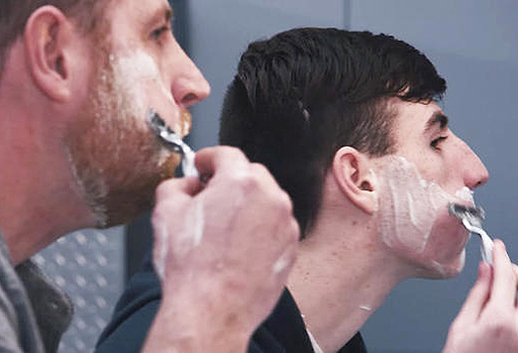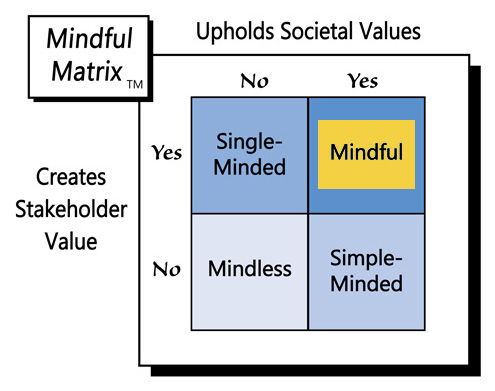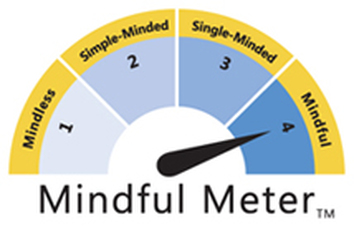One set of ads, however, both honors dads and advances the organizations paying for the promotion. Here are three categories of dad ads—bad, better, and best—which serve as a model for all successful marketing.
1. Bad: Dumb Dad--effective but not ethical
You may have noticed several years ago an onslaught of ads lampooning dads. One such commercial was AT&T’s “Piece of Cake in which a wife goes on an extended business trip, leaving the house in the hands of her largely inept husband. As she says goodbye, she asks doubtfully if everything will be okay, to which he naively replies “Yeah, this is a piece of cake; I got this.”
The rest of the spot shows the dad making blunder after blunder: forgetting how to get to the kids’ school, failing to put down the garage door, letting the kids stay up too late, and forgetting to turn-on the home security system. Fortunately, mom amends each mistake, using AT&T’s remote monitoring system and digital home controls.
Several other TV commercials that seem to intentionally disparage dads are Huggies Dad Test, Doritos Princesses, State Farm Road Trip, and Libman Mop Power-Washing. The list goes on and on, making a trend that many have recognized in advertising as well as in media in general.
Most of these dumb dad ads were probably effective. Although an unfair characterization of fathers, many people found the stereotype funny, as the dad-driven slapstick grabbed attention and kept interest. Furthermore, some of the commercials, like AT&T’s, made legitimate connections to the advertised product, leaving consumers with not just a laugh, but also a reason for purchase.
Of course, the bad thing about these ads was their unflattering portrayal of fathers. A couple of dumb dad ads wouldn’t have mattered much, but with so many media messages painting the picture of an inept parent, there grew genuine concern that the next generation might believe that dads are inherently incompetent, which could hurt families and society as a whole.
2. Better: Warm Fuzzy Fatherhood--ethical but not very effective
Thankfully the era of dumb dad ads has ended: We see fewer ads with failure prone fathers and more men depicted as competent caregivers and practical providers. In fact, the pendulum has swung back so far that many ads seem more intent on furthering fatherhood than on promoting the products and companies behind them.
For instance, a thirty-second Johnson’s commercial sets to music a litany of likeable video clips of dads loving their children. There are no noticeable references to Johnson’s or its products, however, except at the very end when the company’s logo briefly appears with the tagline “For Every Little Wonder.” A similar commercial for Dove Men+Care also contains quick clips of dads and kids with a slightly longer corporate tag at the conclusion. A Traveler’s Insurance ad takes a slightly different twist, following the life of a specific father-daughter duo as she matures, while a Toyota Camry spot mirrors that plot and also ends with tears and a brief corporate tag.
Although these ads are heart-warming and entertaining, they do little of what might be considered effective advertising. Instead, they’re the kinds of commercials, after which people ask “What [product] was that for?” Or, they say, “I really liked that ‘dad commercial,’ but I don’t remember the company,” indicating that key product and company messages have been overshadowed.
Yes, organizational image-building is important—not every ad has to highlight a product. It’s also nice for firms to support social causes like fatherhood, but if after an ad, consumers can’t remember the organization, it’s unlikely that any brand equity has been earned. A company’s commercials must do more than entertain. Ultimately, they should help sell the firm’s products and services, which is critical for all company stakeholders, including the dads it employs. Warm-fuzzy, but ineffective fatherhood ads can actually do a disservice to dads.
3. Best: Mindful Marketing--effective and ethical
Fortunately, a few advertisers have figured out how to maintain dignity for dads while also making a positive marketing impact. They do so by connecting the favorable dad depiction to the firm’s unique selling proposition. In other words, they show respect-worthy fathers benefiting from the organization’s distinct set of value.
A Hyundai Genesis ad features a dad saving his young son from a series of near mishaps involving bricks, bikes, and bats. The commercial concludes with the father and son in the car, averting a near collision, thanks to the vehicle’s auto emergency braking. If consumers remember the danger-diverting dad, they also might recall the clever car and its unique way of protecting people, which is what Hyundai needs in order to sell automobiles.
Gillette also understands the fatherhood formula by its recent “Go Ask Dad” ad. In this touching spot, teen boys find that their fathers are a better source of advice than the Internet for activities such as learning how to shave, which of course is relevant to Gillette's main product line.
Too often in life people assume opportunities are either-or choices, when both-and options are readily available. The case of Dadvertising is no exception. Just as the best fathers do many things well, the best dad ads are at the same time effective and ethical, which makes them “Mindful Marketing.”
Learn more about the Mindful Matrix and Mindful Meter.
Check out Mindful Marketing Ads and Vote your Mind!




 RSS Feed
RSS Feed